Publications
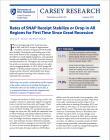
July 28, 2015
From the beginning of the Great Recession in 2007 until 2012, receipt of Supplemental Nutrition Assistance Program (SNAP) benefits grew steadily.1 Participation and funding rose to historic levels2 driven by the changing economy, intensified efforts to enroll eligible populations, and expanded benefits and eligibility via the 2009 American Recovery and Reinvestment Act. Throughout the recovery,…
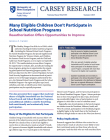
July 14, 2015
The Healthy, Hunger-Free Kids Act of 2010, which authorizes funding for federal nutrition programs (including the National School Lunch Program; the School Breakfast Program; the Special Supplemental Nutrition Program for Women, Infants, and Children; the Summer Food Service Program; and the Child and Adult Care Food Program), is set to expire on September 30, 2015.1 The reauthorization process…
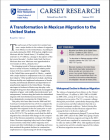
July 14, 2015
The early years of the twenty-first century have seen a major decline in the volume of migration from Mexico to the United States. According to one study, during the 2005–2010 period, slightly more Mexicans left the United States (1.39 million) than entered it (1.37 million), a change in the pattern of the last several decades.1 Another study finds that fewer Mexicans than non-Mexicans were…
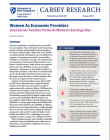
June 30, 2015
Women’s contributions to family income are essential for most families. This is obviously true for the growing number of single-mother families, but increasingly so for married couple families. While dual-earner families are doing relatively well, family income overall has been stagnant or decreasing among single-earner families, resulting in a widening income gap. This study provides an…
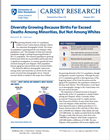
June 25, 2015
The growing diversity of the U.S. population evident in new Census Bureau estimates reflects two important demographic trends. The minority population is growing and the non-Hispanic white population is not. This interplay of white and minority population change is fueling the growing diversity of the U.S. population. The minority population is growing both because births far exceed deaths and…
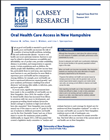
June 23, 2015
Just as good oral health is essential to good overall health, poor oral health can increase the risk of a number of serious health problems, including stroke and cardiovascular disease.1 Access to oral health care is not universal, however. Barriers to care may be related to dental insurance accessibility and affordability, out-of-pocket costs, provider availability, distance to providers, and…
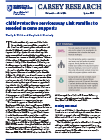
June 16, 2015
The adverse effects of poverty on child and adolescent development are well documented and have been of interest to policy makers for several decades.1 Childhood poverty has a number of lasting impacts, including negative educational and cognitive outcomes, social and emotional behavior problems, poor adult economic outcomes, and health problems.2 For some children, these challenges are coupled…
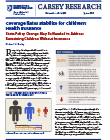
June 9, 2015
Recognizing that adequate health care is key to childhood development and long-term health, policy makers expanded public programs to provide children with health insurance: first, Medicaid in 1965 and, in 1997, the State Children’s Health Insurance Program (SCHIP). In April of 2015, Congress renewed SCHIP for two additional years. Therefore, providing children with health coverage has been…
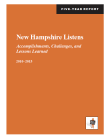
June 1, 2015
This report summarizes the work of NH Listens since our inception over five years ago. The report is organized around the core elements of our three-part mission, which are to create engaged community conversations on local and statewide issues, to serve as a resource and support network for new Local Listens groups, and to cultivate a network of facilitators for public engagement and action.
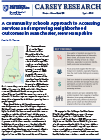
May 19, 2015
In the several years since the Great Recession, New Hampshire, like the nation, has witnessed and experienced growing economic disadvantage. The state’s poverty level stands at 8.4 percent, and child poverty increased from about 8 percent in 2000 to nearly 10 percent in 2012.1 Some areas of the state have been hit harder than others. In the state’s largest city of Manchester, for instance,…
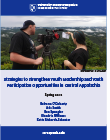
May 5, 2015
Appalachia is facing a vacuum of new leader-ship to move forward. Now is the time to specifi-cally develop and encourage youth leadership in the region, inviting young people to sit at decision mak-ing tables and allowing them to speak directly to the type of communities in which they want to remain. In Appalachia, critical youth leadership is important but few opportunities and organization…
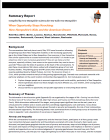
May 1, 2015
The conversations that took place in early May 2015 were focused on informing and getting input from New Hampshire residents on the increasing opportunity gap in the United States and in New Hampshire. Does everyone in New Hampshire have similar opportunities to succeed economically and socially? Is it harder to get ahead now than it was in previous generations? How can we make sure that everyone…
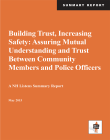
May 1, 2015
Police and community members in the communities of Rochester, Durham, and Dover spent three hours in each location discussing how to encourage mutual understanding and trust between communities and police. Participants from law enforcement and individuals from local neighborhoods worked together to reframe community problems as social issues where both community members and police play a role in…
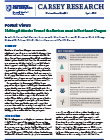
April 21, 2015
Residents of northeast Oregon were surveyed by telephone in an effort to assess individual perceptions of forests and natural resource management. Results show that residents are generally well informed about declining forest health, and they identify active forest management as a high priority. Just over half of residents support increasing public land use fees to pay for forest restoration…
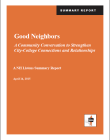
April 14, 2015
During the winter and spring of 2015, the Keene College/City Commission worked with NH Listens to design a community conversation that would focus on one of the four priorities identified by the Commission in 2014— citizenship. As stated in its working charge, the Commission was established with, “the goal of improving the quality of life for residents, students, employers, and visitors while…
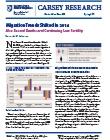
March 26, 2015
In this fact sheet, author Ken Johnson reports on new Census Bureau data released on March 26, 2015. The data provide further evidence that the recession’s influence on domestic migration is diminishing. Migration patterns are reverting to those commonly seen before the recession. Suburban counties of large metropolitan areas are receiving more domestic migrants, while large metropolitan core…
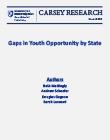
March 9, 2015
Public discourse on economics in the United States, and around the world, often focuses on rising income and wealth inequality. The “Occupy” movement drew great attention to the rising fortunes of the top one percent while middle- and lower-income Americans lost ground. Vast scholarly, political, and media attention is focused on issues of growing inequality and implications for broader societal…
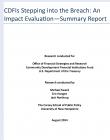
February 24, 2015
In CDFIs Stepping Into the Breach: An Impact Evaluation Summary Report, published with the U.S. Treasury Department's Community Development Financial Institutions Fund, authors Michael Swack, Eric Hangen and Jack Northrup analyze the impact of financial assistance awards and recipients of the Community Development Financial Institutions (CDFI) Program.
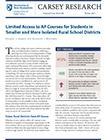
February 11, 2015
This brief assesses trends in access to, enrollment in, and success in Advanced Placement (AP) coursework in relation to school district poverty, racial composition, and urbanicity. It uses data merged from the 2011–2012 Civil Rights Data Collection (CRDC), the 2012 Small Area Income and Poverty Estimates (SAIPE), and the 2010 Decennial U.S. Census. Authors Douglas Gagnon and Marybeth Mattingly…
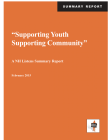
February 11, 2015
The Milton School District, along with a group of community members, teachers, and local civic leaders, worked with New Hampshire Listens to design a community conversation on the best way to support the young people of Milton to grow, thrive, and succeed.